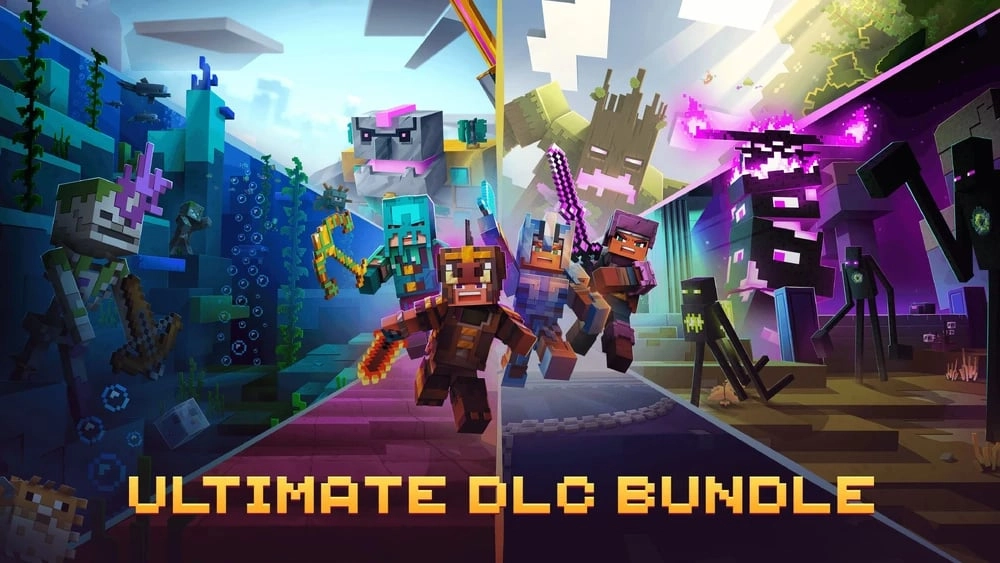
The world of gaming is continually evolving, with downloadable content (DLC) playing an increasingly significant role. The year 2023 witnessed a surge in high-quality expansions for Xbox consoles, changing the landscape of the gaming experience. Among these, Cyberpunk 2077: Phantom Liberty not only made a striking impression but also secured a spot on the Pure Xbox Game of the Year list as chosen by gamers. Another notable expansion, Resident Evil 4: Separate Ways, earned an admirable 89 rating on Metacritic, emphasizing the quality of these additions.
Expanding the Universe of Fandom
Expansions and DLC packages are an integral part of modern gaming, serving as bridges between the initial release and the enduring legacy of a game. By offering new storylines, characters, challanges, and enhanced gameplay mechanics, these expansions reinvigorate interest and extend the life of the games. The inclusion of such packs in highly esteemed lists and reviews points toward a trend of DLC assuming a role nearly as crucial as the base games themselves.
On the flipside, despite the availability and acclaim of various DLCs, there appears to be a disconnect between release and engagement. Ranging from time constraints to myriad options, players often find themselves overwhelmed by the sheer volume of content available. The requirement to have completed the game to fully savor the experience of an expansion is another barrier for many. As a result, substantial expanses of the gaming community have yet to dive into numerous available DLCs, regardless of their allure.
The Deluxe Questionnaire: Measuring Engagement with DLC
A recent poll sought to measure the extent of DLC engagement among gamers. Questions revolved around how often individuals make DLC purchases and whether these were reserved for cherished titles or were a regular part of their gaming purchases. The aim was to understand the behavior and preferences of players in the context of additional content.
Assessing the Poll Results
The invitation to participate in the poll garnered various responses, revealing diverse habits among the gaming populace. A portion of voters professed to incorporating DLC purchases into their regular gaming routine, while others confined their expenditure to select beloved titles. Alternately, some expressed a sporadic involvement with DLC, and a similar fraction indicated a virtual absence of DLC purchases. This spread of behavior mirrors the diverse motivations and preferences that influence how gamers choose to invest in further content.
Reflecting on these habits, it seems that many gamers view DLC as an optional, rather than essential, component of their gaming experience. Crucially, the uptake seems driven by the significance of the base game in a player's collection and the convenience of integrating an expansion into their gaming schedule.
The Culture of Gaming and the DLC Dilemma
The emergence of DLC as a prolific part of the gaming market begs the discussion on how this affects gaming culture. On the one hand, it offers studios an avenue to cultivate and continue the stories that gamers have come to cherish, thus fostering a deeper connection with the gaming community. On the other hand, the proliferation of DLC can be overwhelming for players, both financially and temporally, as they struggle to keep up with the deluge of content.
However, developers and publishers continue to march forward, pushing DLC as an essential part of the gaming experience. Newer content can revitalize interest in older titles, provide a more in-depth exploration of game worlds, and offer players fresh challenges to overcome. Despite this, it is evident from the poll and commentary that a balance must be found between the benefits of DLC and the time and monetary investment required from players.
Conclusion
The narrative of DLC in gaming is a reflection of the evolving landscape of player engagement and content consumption. As new expansions like Cyberpunk 2077: Phantom Liberty and Resident Evil 4: Separate Ways set exemplary standards, both developers and gamers are learning to adapt to a market that values both quantity and quality.
The mixed responses to the DLC buying habits poll underscore a gaming community that is diverse in its engagement and selective in its investments. Even as many players express a desire to delve into new storylines and game mechanics, practical limitations often take precedence, leading to a more cautious and calculated approach to DLC purchases.
Whether it's a novel adventure through the dystopian streets of Night City or a harrowing ordeal in the survival horror trope, the fascination with DLC is undeniably growing. Yet, how this engagement shapes the future of gaming remains to be seen, with each player's habits contributing to the larger narrative of the industry.
You must be logged in to post a comment!